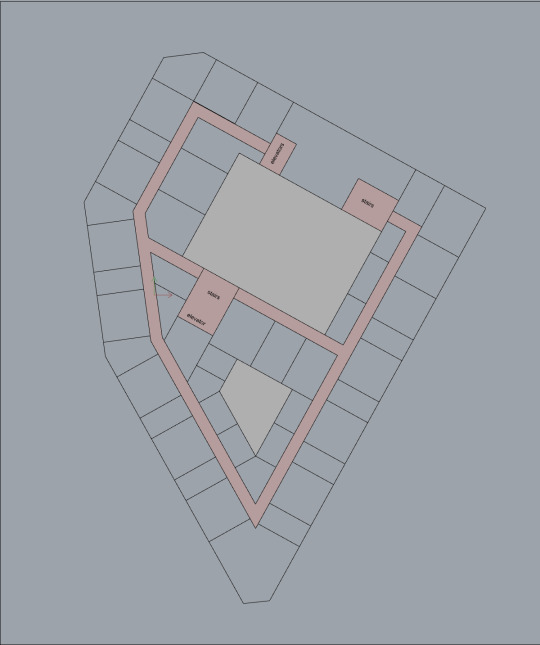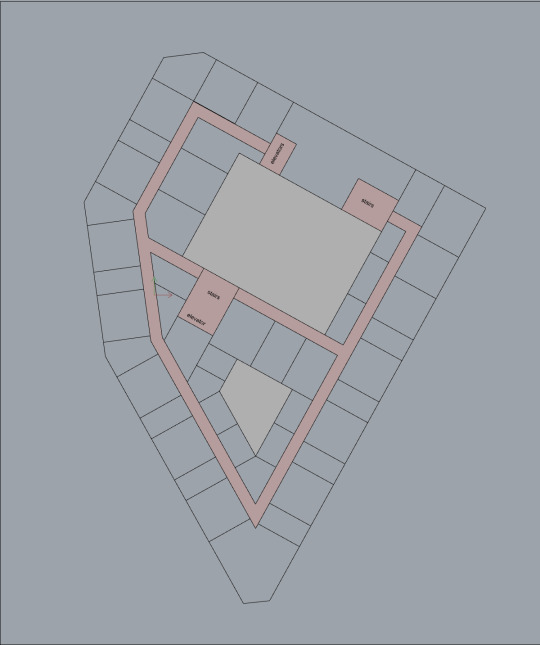Link
0 notes
Text
Les Choses
Georges Perec
1965
PART II
CHAPTER I
They tried to escape. One cannot live very long amid frenzy. The tension was too great in this world that promised so much and gave nothing. They were at the end of their patience. They seemed suddenly to realize one day that they needed a refuge.
They were marking time in Paris. They were no longer getting ahead. And they sometimes imagined themselves (each trying to outdo the other with that superabundance of false details that marked each of their dreams) as petits bourgeois forty years old. Jerome would be a director of a door-to-door selling network (Family Protection, Soap for the Blind, Needy Students); Sylvie would be a good housewife, with their tidy apartment, their little car, the little family pension where they would spend all their vacations, their television set. Or else they would see themselves as just the opposite, and this was still worse: overage bohemians, in turtlenecks and velvet pants, at the same sidewalk cafe in Saint-Germain or Montparnasse each night, eking out an existence through rare strokes of luck, shabby to the very ends of their black fingernails.
They would dream of living in the country, safe from all temptation. Their life would be frugal and clear as crystal. They would have a white stone house at the entrance of a village, warm corduroy pants, heavy shoes, a ski jacket, a steel-tipped cane, a hat, and they would take long walks in the forest every day. Then they would come back home; they would prepare tea and toast, as the English do; they would put huge logs in the fireplace; they would put a quartet they never tired of hearing on the phonograph; they would read the great novels they had never had time to read; they would receive their friends.
These imaginary flights to the country were frequent, but they rarely got to the stage of real planning. Two or three times, it is true, they idly wondered what sort of jobs they could get in the country. There weren’t any. The thought of being schoolteachers came to them one day, but they immediately loathed the idea, thinking of the overcrowded classes, the hectic days. They talked vaguely of becoming traveling librarians, or of going to make pottery in an abandoned country house in Provence. Then they conceived the happy notion of living in Paris only three days a week, earning enough money there to live comfortably in the Yonne or the Loiret the rest of the time. But these embryonic departures never developed into much of anything. They never envisaged the real possibilities — or rather, real impossibilities — of them.
They dreamed of giving up their work, of letting everything go, of starting out with no set plans. They dreamed of starting over from scratch, of beginning all over on a different footing. They dreamed of sharp breaks and goodbyes.
The idea, however, made its inroads, and slowly came to stick in their minds. In mid-September of 1962, when they got back from a mediocre vacation spoiled by rain and their lack of money, they seemed to have made up their minds. An ad appeared in Le Monde during the first days of October, offering teaching jobs in Tunisia. They hesitated. It was not the ideal chance — they had dreamed of the Indies, the United States, Mexico. It was only a run-of-the-mill, ordinary offer, which promised neither lots of money nor adventure. They did not feel tempted. But they had friends in Tunis, former high school and university classmates, and then there was the warm climate, the blue Mediterranean, the promise of another life, a real departure, different work. They agreed they would apply. They were given the jobs.
Real departures are planned long in advance. This one was a fiasco. It resembled a hasty escape. For two weeks they ran from office to office, for medical examinations, for passports, for visas, for tickets, for baggage. Then four days before they were to leave they learned that Sylvie, who had two advanced teaching certificates, had been appointed to the Technical High School in Sfax, two hundred and seventy kilometers from Tunis, and Jerome, who had had only one year of preparation for teaching, was appointed to teach grade school in Mahares, thirty-five kilometers farther away.
It was bad news. They wanted to give up the whole thing. They had wanted to go, they had thought they were going to Tunis, where friends were waiting for them, where a place to live had been rented for them. But it was too late. They had sublet their apartment, bought their tickets, given their good-bye party. They had been ready to leave for a long time. And then Sfax, a place they hardly recognized the name of, was the end of the world, the desert. Yet it did not even displease them, what with their strong liking for extreme situations, to think that they were going to be cut off from everything, far away from everything, isolated as they had never been before. They agreed, however, that a post as a grade school teacher was, if not too much of a comedown, at least too hard a job.
Jerome managed to have his contract canceled: one salary would give them money to live on until he found some sort of work once he got there. So they left. Friends went with them to the station, and on the morning of the twenty-third of October, with four trunks of books and a folding bed, they went aboard the “Commandant-Crubellier” at Marseille, bound for Tunis, The sea was rough and lunch was not good. They were ill, took tablets, slept soundly. The next day they sighted Tunis. The weather was fine. They smiled at each other. They saw an island that someone said was named L’Ile Plane, then stretches of long, narrow beach, and after la Goulette, flights of migratory birds on the lake.
They were happy they had left. It seemed to them that they were emerging from a hell of crowded subways, nights that were too short, toothaches, uncertainties. They couldn’t see things clearly. Their life had been a sort of endless dance on a tightrope which led nowhere: empty hunger pangs, a naked desire, boundless and helpless. They felt exhausted. They were leaving to bury themselves, to forget, to find peace.
The sun was shining. The ship sailed slowly, silently, down the narrow channel. On the road right next to it people standing in open cars waved to them. There were motionless little white clouds in the sky. It was already hot. The plates of the topside were warm. On the deck below them, sailors were piling up the deck chairs, rolling up the long tarred canvases that protected the holds. Lines were forming at the gangplanks.
They arrived at Sfax two days later, about two o’clock in the afternoon after a seven-hour train trip. The heat was overwhelming. Opposite the station, a tiny pink and white building, was an endless avenue, gray with dust, planted with ugly palm trees, lined with new buildings. A few minutes after the train pulled in, after the few scattered cars and motorbikes had left, the city fell once again into total silence.
They left their valises at the baggage-checking desk. They started down the avenue, which was called the avenue Bourguiba, and came to a restaurant about three hundred yards away. A huge adjustable ventilator on the wall hummed irregularly. A few dozen flies had congregated on the sticky tables covered with oilcloth, and a poorly shaved waiter chased them away with a nonchalant wave of a napkin. For two hundred francs they had a tuna salad and a veal cutlet milanese.
Then they looked for a hotel, got a room, and had their bags brought up. They washed their hands and faces, lay down for a minute, changed clothes, came downstairs again. Sylvie went to the Technical High School; Jerome waited for her outside on a bench. Around four o’clock, Sfax slowly began to wake up again. Hundreds of children appeared, then veiled women, policemen dressed in gray poplin, beggars, carts, donkeys, immaculate bourgeois.
Sylvie came out with her teaching schedule in her hand. They walked around again; they drank a stein of beer and ate olives and salted almonds. Newspaper vendors were selling the Figaro of two days before. They had arrived.
The next day Sylvie met some of her future colleagues. They helped them find an apartment. There were, to begin with, three enormous, completely empty rooms with high ceilings. A long corridor led to a little square room where five doors opened on the three bedrooms, a bath-room, and an immense kitchen. Two balconies overlooked a little fishing port, Basin A of the south channel, which somewhat resembled Saint-Tropez, and a lagoon that stank. They took their first walk in the Arab quarter, bought box springs and a hair mattress, two rattan chairs, four rope stools, two tables, a thick esparto-grass mat decorated with unusual red motifs.
Then Sylvie began teaching. Day by day they settled down. Their trunks, which had come as hold baggage, arrived. They unpacked the books, the records, the phonograph, the knickknacks. They made lampshades out of large sheets of red, gray, green blotting paper. They bought long, rough-hewn pieces of lumber and perforated bricks and covered half of two walls with shelves. They pasted up dozens of reproductions on all the walls, and photographs of all their friends on one section in plain sight.
It was a cold and dreary place. What with the walls that were too high, covered in a sort of ocher-yellow limewash that was peeling off in great chunks, the floors uniformly tiled in large colorless squares, the useless space, everything was too large, too bare, for them to feel at home there. There should have been five or six of them, good friends, eating, drinking, talking. But they were alone, lost. The living room still gave off a certain warmth, what with its folding bed covered with a little mattress and a multicolored bedspread, with the thick mat with a few cushions thrown on it, with, above all, their books — the row of Pleiade editions, the sets of magazines, the four Tisnes — and with the knickknacks, the records, the big nautical chart, the “Festival of the Carrousel” everything that not so long ago had been the decor of their other life, everything that in this universe of sand and stone took them back toward the rue de Quartrefages, toward the tree that stayed green so long, toward the little gardens. Lying on their bellies on the mat, with a tiny cup of Turkish coffee next to them, they would listen to the Kreutzer sonata, the Archduke trio, Death and the Maiden, and it was as if the music, which took on an astonishing resonance in this huge, barely furnished room, almost a public hall, began to live in it and suddenly transformed it. It was a guest, a very dear friend, who had dropped out of sight and been found again by chance, who shared their meals, who spoke to them of Paris, who on this cool November evening in this foreign town where nothing belonged to them, where they did not feel comfortable, led them back, allowed them to experience once again an almost forgotten feeling of complicity, of life shared. It was as if in a narrow perimeter — the surface of the mat, the two rows of shelves, the record player, the circle of light shed by the cylindrical lampshade — a protected zone, which neither time nor distance could penetrate, had managed to take root and survive. But all around them was exile, the unknown: the long corridor where steps resounded too loudly; the immense, ice-cold, hostile bedroom with its one piece of furniture, a wide bed that was too hard and smelled of straw, its wobbly lamp set on an old crate that served as a night table, its wicker trunk full of linen, its stool with clothes piled up on it; and the third room, unused, that they never went into. Then the stone stairway, the huge entry hall perpetually menaced by sand; the street — three two-story buildings, a shed where sponges were dried, a vacant lot; the city around them. They doubtless spent the oddest months of their whole lives in Sfax.
Sfax, whose port and European quarter had been destroyed during the war, was made up of about thirty streets cutting across each other at right angles. The two main streets were the avenue Bourguiba, which went from the railroad station to the central market, near which they lived, and the avenue Hedi-Chaker, which went from the port to the Arab quarter. Their intersection formed the center of the city: located there were the city hall, whose two downstairs halls contained a few old pieces of pottery and a half-dozen mosaics; the statue and the tomb of Hedi-Chaker, assassinated by the Red Hand shortly before independence; the Cafe de Tunis, frequented by Arabs, and the Cafe de la Regence, frequented by Europeans; a little flower bed, a newspaper kiosk, a tobacco store.
One could circle the European quarter in just a little more than a quarter of an hour. The Technical High School was three minutes away from the building they lived in, the market two minutes, the restaurant where they ate all their meals five, the Cafe de la Regence six, as were the bank, the municipal library, and six of the seven movie theaters in town. The post office and the railroad station, and the place to rent cars for Tunis or Gabes, were less than ten minutes away, and constituted the extreme limits of what it sufficed to be acquainted with to live in Sfax. The beautiful old fortified Arab town offered grayish-brown walls, and doors which were considered admirable, and rightly so. They often went inside the Arab town and made it almost the only destination of all their walks, but since they were really only strollers they always remained outsiders. They did not understand even its simplest mechanisms; they saw in it only a labyrinth of streets. They would look up and admire a forged iron balcony, a painted beam, the pure pointed arch of a window, a subtle play of light and shadow, an extremely narrow stairway, but their walks were aimless; they went round and round, feared at every instant that they would get lost, and tired quickly. Nothing, in the end, seemed attractive to them in this succession of miserable shops, almost identical stores, and native bazaars crowded together, in this incomprehensible alternation of swarming streets and empty streets, in this crowd that as far as they could see was going nowhere.
This sensation of being outsiders was accentuated, became almost oppressive, when with long empty afternoons before them, or dispiriting Sundays, they went all through the Arab part of the city and, beyond Bab Djebli, reached the endless suburbs of Sfax. For whole kilometers there were tiny gardens, hedges of prickly pear, mud huts, sheet-iron and cardboard shacks, then immense, deserted, putrid lagoons, and at the very end of them, the first fields of olives. They loitered about for hours; they passed by garrisons, and walked across vacant lots and muddy sections of town.
And when they came back to the European quarter, when they passed the Hillal movie theater or the Nour, when they sat down at the Regence, clapped their hands to call the waiter, ordered a Coca-Cola or a stein of beer, bought the latest Le Monde, whistled for the vendor, always dressed in a long dirty white smock and a canvas skullcap on his head, to buy a few cones of peanuts, toasted almonds, pistachio nuts and pine nuts from him — then they had the dreary feeling that this was home.
They would walk alongside palm trees gray with dust; they would walk along the neo-Moorish facades of the buildings along the avenue Bourguiba; they would glance vaguely at the hideous shop windows: frail furniture, ironwork candelabra, electric blankets, notebooks for schoolboys, street dresses, ladies’ shoes, bottles of butane gas — it was their only world, their real world. They would trudge back home. Jerome would make coffee in coffeemakers imported from Czechoslovakia; Sylvie would correct a pile of exercises.
Jerome had tried at first to find work. They had gone to Tunis several times, and thanks to letters of introduction he had gotten in France, and with the aid of his Tunisian friends, he had met employees in offices of the Information Service, Radio, Tourist Bureau, and National Education. It was wasted effort. Motivation studies did not exist in Tunis, nor did part-time work, and people held on to the rare soft jobs. He had no qualifications; he was neither an engineer nor an accountant nor an industrial designer nor a doctor. He was again offered jobs as a grade school teacher or assistant teacher in a high school; he didn’t want them. He soon abandoned all hope. Sylvie’s salary allowed them to live, frugally: this was the most usual way of living in Sfax.
Following the program for the year, Sylvie wore herself out trying to explain the hidden beauties of Malherbe and Racine to pupils taller than she was who didn’t know how to write. Jerome wasted his time. He started on different projects that he could never carry out: preparing to pass an examination in sociology, trying to put his ideas about movies into shape. He loitered in the streets in his Weston shoes, strode up and down the port, wandered through the market. He went to the museum, exchanged a few words with the guard, looked for a while at an old amphora, a tombstone inscription, a mosaic: Daniel in the lions’ den, Araphitrite riding a dolphin. He went to watch a tennis match on the courts set up at the foot of the ramparts, he crossed the Arab quarter, he loitered in the native bazaars, hefting fabrics, brass pieces, saddles. He bought all the newspapers, did the crossword puzzles, borrowed books from the library, wrote his friends rather sad letters that often were not answered.
Sylvie’s schedule established the rhythm of their life. Their week was made up of lucky days — Mondays, because the morning was free and because the bill changed at the movie, Wednesdays, because the afternoon was free, Fridays, because the whole day was free and the movie programs changed again — and unlucky days: the rest of the week. Sunday was a neutral day, agreeable in the morning because they stayed in bed and the weeklies from Paris came, dragging in the afternoon, sinister in the evening, unless a movie by chance appealed to them, but it was rare for two worth-while or even tolerable films to be shown in the same half-week. And so the weeks went by. They succeeded each other with mechanical regularity: four weeks made a month, more or less, and the months were all alike. The days, after having grown shorter and shorter, became longer and longer. Winter was damp, cold almost. Their life flowed by.
0 notes
Text
bohemian (n.)
"a gypsy of society; person (especially an artist) who lives a free and somewhat dissipated life, despising conventionalities and having little regard for social standards," 1848, from a transferred sense of French bohemién "a Bohemian; a Gypsy," from the country name (see Bohemia). The Middle English word for "a resident or native of Bohemia" was Bemener.
The French used bohemién since 15c. to also mean "Gypsy." The Roma were wrongly believed to have come from there, perhaps because their first appearance in Western Europe may have been immediately from Bohemia, or because they were confused with the 15c. Bohemian Hussite heretics, who were driven from their country about that time.
The transferred sense, in reference to unconventional living, is attested in French by 1834 and was popularized by Henri Murger's stories from the late 1840s later collected as "Scenes de la Vie de Boheme" (the basis of Puccini's "La Bohème"). It appears in English 1848 in Thackary's "Vanity Fair."
The term 'Bohemian' has come to be very commonly accepted in our day as the description of a certain kind of literary gipsey, no matter in what language he speaks, or what city he inhabits .... A Bohemian is simply an artist or littérateur who, consciously or unconsciously, secedes from conventionality in life and in art. [Westminster Review, 1862]
Hence also the adjective, "unconventional, free from social restraints" (1848).
0 notes
Photo

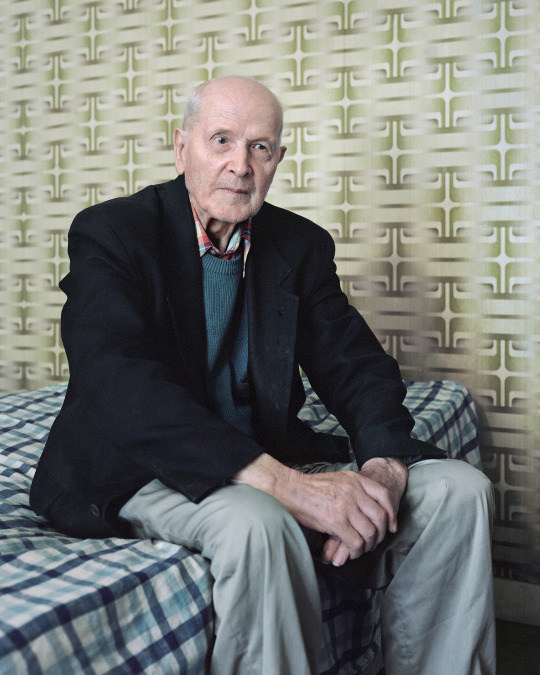
Laurent Kronental
Souvenir d’un Futur
2011–2015
Exposing these unsung and underestimated suburban areas is a means to reveal the poetry of aging environments slowly vanishing, and with them, the memory of modernist utopia.
0 notes
Photo
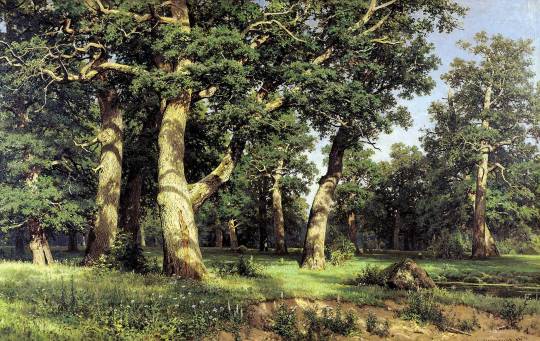
Oak Grove, 1887
Ivan Shinshins works are notable for poetic depiction of seasons in the woods, wild nature, animals and birds.
0 notes
Link
0 notes
Text
poetics
Elizabeth Murdoch is wealthy and powerful. Now she needs a face to show to society. Poetics, rhetorics and politics are the main functions of society [Aristotle] and as the wealth of the empire was sufficient to bear the expense of the most stately structures, we are told that a private man, on his own proper charges built baths for the people with a hundred columns of numidian marble. [Alberti] As though the philosophies without object were politics, theatre or magic. When they come across an object, they change it, by sleight of hand, into a relationship, language or representation. Myth lacks an object, as do theatre and politics. [Serres] Elizabeths Brand and therefore the architecture we aim should be poetic in its purest form. It is accessible to the pubic and its spaces are designed without a program, but with stories. Poetry, the first literary form, is metaphorical in essence. [Derrida] All poetic genres are subordinated to the goal, of investigating the ways in which the marvellous can be produced in the reader's mind [Schmitt], and the people consider this kind of language as speech inspired by the Gods. [Delbeke] By the names of gods they wished their readers to understand those mental qualities which compel us towards one or another course of action. [Alberti] Considering the way in which the earliest societies were bound together, is it surprising that the first stories were in verse and the first laws were sung? [Derrida] Poetry employs figures of speech to help the reader visualize an idea or feeling. [Herrington] Poetry is an imitation; not all writers of verse are poets. [Weinberg] Poetry in general seems to have sprung from two causes, each of them lying deep in our nature. First, the instinct of imitation in implanted in man from childhood, one difference between him and other animals being that he is the most imitative of living creatures, and through imitation learns his earliest lessons; and no less universal is the pleasure felt in things imitated. [Aristotle] There are three genres of Poetics, which we will try to use for our architecture.
epos
In ancient Greece, the epic poetry of Homer played a central cultural role. One aspect of this role was Homeric poetry's supposed connection to knowledge. [Parsons] Only after the most ancient arts that created reality, those arts emerged that 'praise reality,' namely those of 'representation' like painting, epic writings and dance. [Schrater] I would have nothing either on the Wall or Pavement of the Temple but what savours entirely of Philosophy - the Composition of the Lines of the Pavement full of musical and geometrical Proportions; to the Intent that which soever Way we may turn our Eyes, we may be sure to find Employment for our Minds. [Alberti]
lyric
Architectural and verbal language have evolved together. [Schumacher] We grasp the words of a language as sound patterns. [Saussure] Under this rubric, lyric poetry and literature are therefore more appropriate than their tragic counterparts for the aims of the “configuration” of architectural atmospheres. This lyric mythos (the mood) is joined by a lyric mimesis, in the sense that the mood created becomes a sort of “model” for “seeing as” and “feeling as.” [Perez Gomez] The hidden entrance, tucked in the space of overlap between the two squares, also references the opening lines of the poem. [Leatherbarrow Eisenschmidt]
drama
The enthymeme, particularly in drama, entails twisting ideas together in a non linear action that does not fill in all the links so that it may be brief as opposed to the epic, which requires a linear procedure and thus a longer chain of reasoning. [Ascott] The Drama is much more a deceptive Art than Painting. Which of us has not been for a moment at least totally lost and absorbed in the contemplation of a great actor, scarcely conscious that we were sitting at a play? [Harrison Wood Gaiger] Architecture’s value no longer lay in its redemptive social power, its transformation of productive processes, but rather in its communicative power as a cultural object. [Hays]
sources
Alberti, 10 books of architecture 1755
Serres, The Five Senses
Derrida, Of Grammatology
Schmitt, The Cambridge History of Renaissance Philosophy
Delbeke, The Art of Religion
Alberti, Momus
Herrington, Landscape Theory in Design
Weinberg, A History of Literary Criticism in the Italian Renaissance 1
Aristotle, Poetics
Parsons, The Philosophy of Design
Schrater, 3D History Theory and Aesthetics of the Transplant
Schumacher, The Autopoiesis of Architecture Vol2
Saussure, Course in General Linguistics
Perez Gomez, Attunement Architectural Meaning After the Crisis
Leatherbarrow Eisenschmidt, Twentieth Century Architecture
Ascott, Art Technology Consciousness Mindlarge
Harrison Wood Gaiger, Art in Theory 1648 1815
Hays, Architecture Theory since 1968
0 notes
Photo

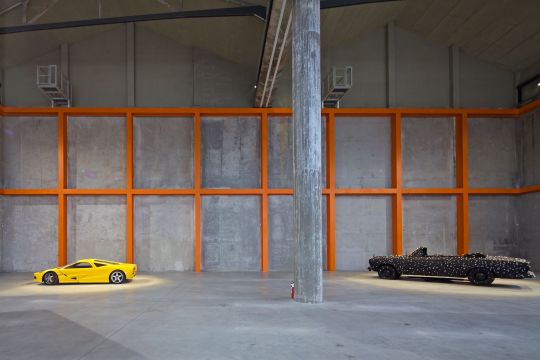




Two conditions that are usually kept separate here confront each other in a state of permanent interaction.
New, old, horizontal, vertical, wide, narrow, white, black, open, enclosed.
By introducing so many spatial variables, the complexity will promote an unstable, open programming.
0 notes
Photo

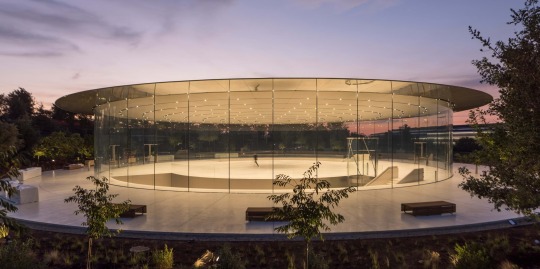
Steve Jobs Theatre
There are now over 9,000 trees on site, including indigenous oaks and orchards, as well as meadows, sports fields, terraces and a secluded pond.
They are the biggest of their kind ever constructed, and enhance the sense of landscape sweeping through the building.
Between its two volumes, a juice bar serves healthy drinks and snacks around a courtyard shaded by olive trees.
Great care was given to the geometry and seating arrangement to ensure the closest relationship between presenter and audience.
I really do think that architecture students will come here to see it.
0 notes

